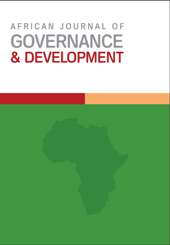Evolution of Local Governance in Uganda and its Implications for Policy and Practice
Main Article Content
Abstract
Uganda’s local governance has evolved significantly since colonial times, gaining prominence in the 1990s through a decentralisation policy encompassing political, administrative, and fiscal devolution. While the policy initially brought numerous benefits, it has also faced challenges, leading to the retraction of some devolved administrative and fiscal functions. A review of narrative and systematic literature on Uganda’s local government system reveals that effective devolution requires fiscal empowerment of local governments to enable meaningful planning and budgeting alongside clear frameworks delineating the roles of central and local governments. It also emphasises the importance of intensified community engagement over the continuous creation of new structures, fostering public confidence in governance systems and actors, and leveraging partnerships, stakeholder involvement, and innovative approaches to address complex societal challenges. The study recommends a paradigm shift from focusing on the numerical proliferation of local governments to empowering communities, confronting grassroots challenges, digitising local governance systems, and regenerating and rebranding local government institutions to enhance their relevance and effectiveness in policy and practice.
Article Details

This work is licensed under a Creative Commons Attribution-NonCommercial-NoDerivatives 4.0 International License.
